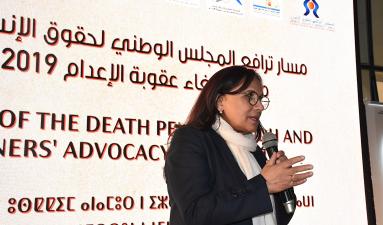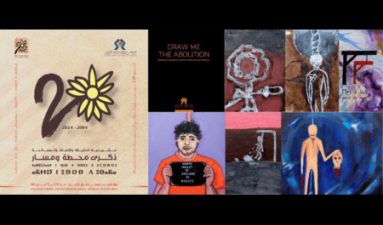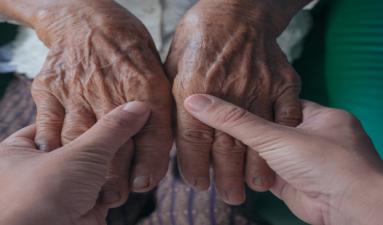
The number of persons sentenced to death reached 83 by the end of 2023, including 81 individuals who received final judgments, in addition to two initial rulings issued during 2023.
The National Human Rights Council (CNDH) considers the right to life to be the supreme human right. As outline in Chapter Two of the Constitution, it is enshrined as a constitutional right protected by law as the foundation upon which all other rights are built. The CNDH continues to monitor the extent to which this right is respected and not violated in any way or under any pretext. It follows up on the cases involving individuals sentenced to death and monitors hunger strikes and fatalities within places of detention.
Mrs. Amina Bouayach, CNDH Chairperson, noted that death penalty sentences persist, with 83 issued in total, 81 of which were final, despite the constitutional guarantee of the right to life and the protection of individual’s physical and moral integrity. Mrs. Bouayach emphasized that the CNDH encourages the Government to reassess its position on several recommendations that were partially or entirely rejected. This includes the recommendation to abolish the death penalty both in law and practice.
The Moroccan Penal Code includes provisions relating to the death penalty. By the end of 2023, a total of 83 individuals had been sentenced to death, including 81 who received final judgments and two who received initial rulings during the year. These figures reveal that while Morocco has had a de facto moratorium on executions since 1993, it has not taken effective legislative measures towards the abolition of the death penalty. Judges continue to issue death penalty sentences.
The CNDH notes the ongoing lack of a clear methodology from the Government and Parliament regarding the organization of a national dialogue on the abolition of this penalty. This issue was a prior commitment outlined in the National Action Plan for Democracy and Human Rights 2018-2021, and was reinforced by Morocco's interaction with the Human Rights Council (HRC) during the Universal Periodic Review (UPR), which included recommendations urging the continuation of this dialogue. Measure No. 365 of the National Action Plan for Democracy and Human Rights 2018-2021 calls for an ongoing societal dialogue on the accession to the Second Optional Protocol to the International Covenant on Civil and Political Rights aiming at the abolition of the death penalty.
Continuing Advocacy for Abolition
The CNDH continues its advocacy for the abolition of the death penalty in law and practice, both nationally and internationally. Its efforts focus on raising public and political awareness about the need to abolish this inhumane punishment, highlighting its ineffectiveness in combating crime. In its memorandum submitted to Parliament on October 28, 2019, regarding the draft law amending and supplementing the Penal Code, the CNDH recommended the abolition of the death penalty.
The CNDH also continues to fulfil its commitments under its partnership with the International and national associations, which aims to advocate for the abolition of the death penalty in law and practice. On the occasion of the World Day Against the Death Penalty, the CNDH, in partnership with the Moroccan Coalition for the Abolition of the Death Penalty, Moroccan Prison Observatory, and Together Against the Death Penalty (ECPM) Association, in addition to networks of parliamentarians, lawyers, journalists, professors, and entrepreneurs against the capital punishment, organized a press conference on October 12, 2023 at the CNDH’s headquarters in Rabat, Morocco. At this event, Mrs. Bouayach reiterated the CNDH’s steadfast position on abolishing the death penalty and strengthening the right to life.
In its commitment to the complete abolition of the death penalty, the CNDH has been keen to protect the rights of persons sentenced to death. It monitors the conditions of these prisoners, focusing on their health and well-being. This includes following up on their health status and treatment throughout the judicial process and offering support to those suffering from chronic illnesses, psychological, and mental health challenges. Additionally, the CNDH provides support to those in vulnerable situations.
Recommendations for Abolishing the Death Penalty in Law and Practice
The CNDH recommends adopting a structured approach to initiate a national dialogue on the abolition of the death penalty. It reaffirms its previous recommendations, which include:
- Abolishing the death penalty in law and practice;
- Endorsing the United Nations General Assembly resolution on the suspension of the death penalty, scheduled for vote in December 2024.








